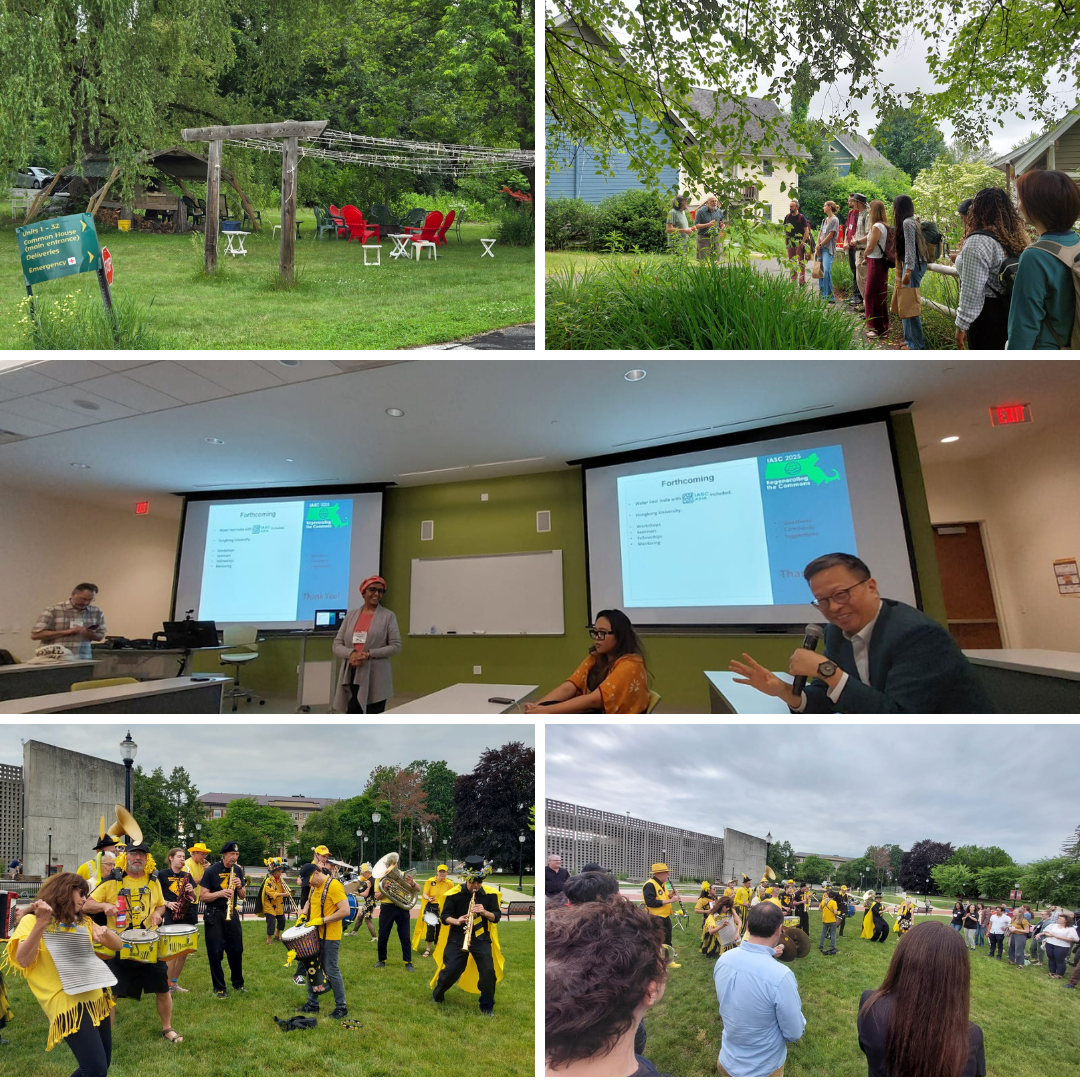Professor Wai Fung Lam, Dr. Jessica Williams and Dr. Vivian Chu attended the 20th Biennial Conference of the International Association for the Study of the Commons (IASC) at the University of Massachusetts Amherst (June 15–21, 2025).
Relating to the Centre’s Forest Village project, Jessica presented on “Participatory Approaches to Ecosystem Service Assessment: Integrating Community Assessment and Values in Revitalising peri-urban Systems” as part of the panel on “Decision-Making in Social-Ecological Systems and Commons Dilemmas” which was also moderated by Dr. Williams. Here, initial research findings were shared to highlight how such participatory approaches can identify diverse stakeholder needs in complex social-ecological systems, provide insights into management approaches and manage trade-offs.
Vivian’s presentation was based on experiences accumulated from a number of the Centre’s project. Her presentation ‘University-NGO collaborations for the co-creation and scaling of social innovations’ was part of the panel titled ‘Co-creating Social Value and Innovation’ where we aim to contribute to the literature through a typology of universities-NGO partnerships in relation to the level of complementarity and the outcomes achieved.
Part of the outcomes we highlighted in the presentation is the effect of scaling social innovations. Special thanks to Brenda Bushouse for organizing and moderating this insightful discussion.
Vibrant exchanges with fellow panellists and participants—including Lu Yu, Tamara Keshecki, Isabel Guerrero, Raul Lejano, (among many others) – have contributed to enriching our conference experience.
The first day of the conference was concluded with an incredible performance by The Expandable Brass Band bringing their joyful music and spreading their charm to help everyone to feel refreshed for the week of intellectual exchanges.
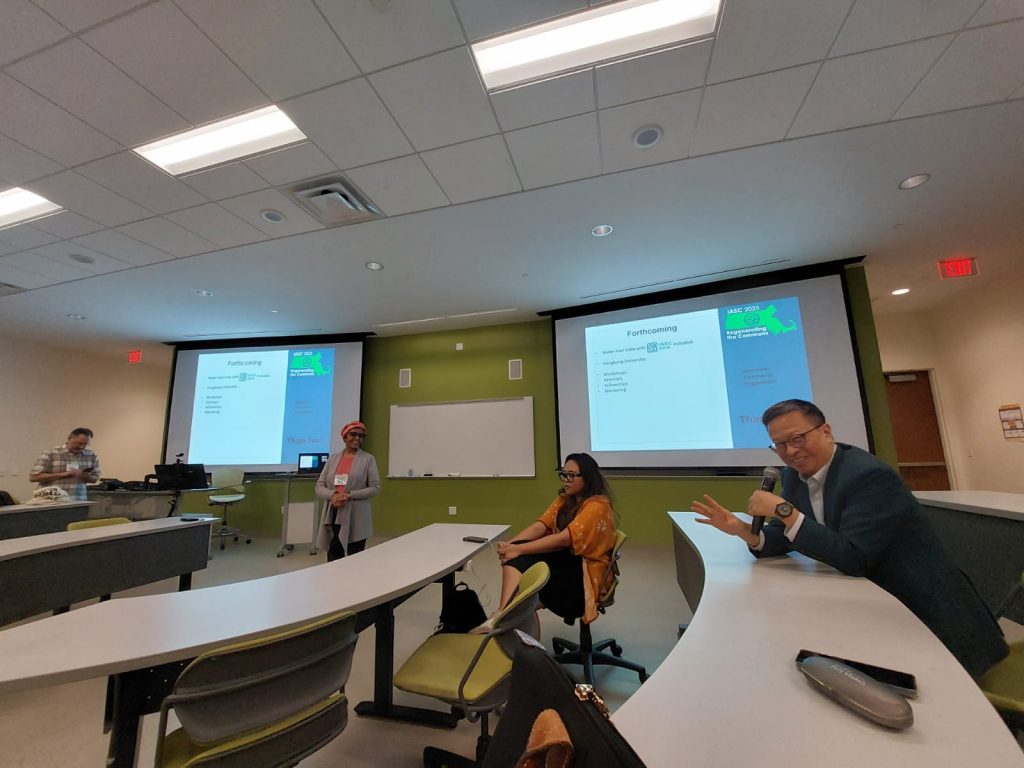
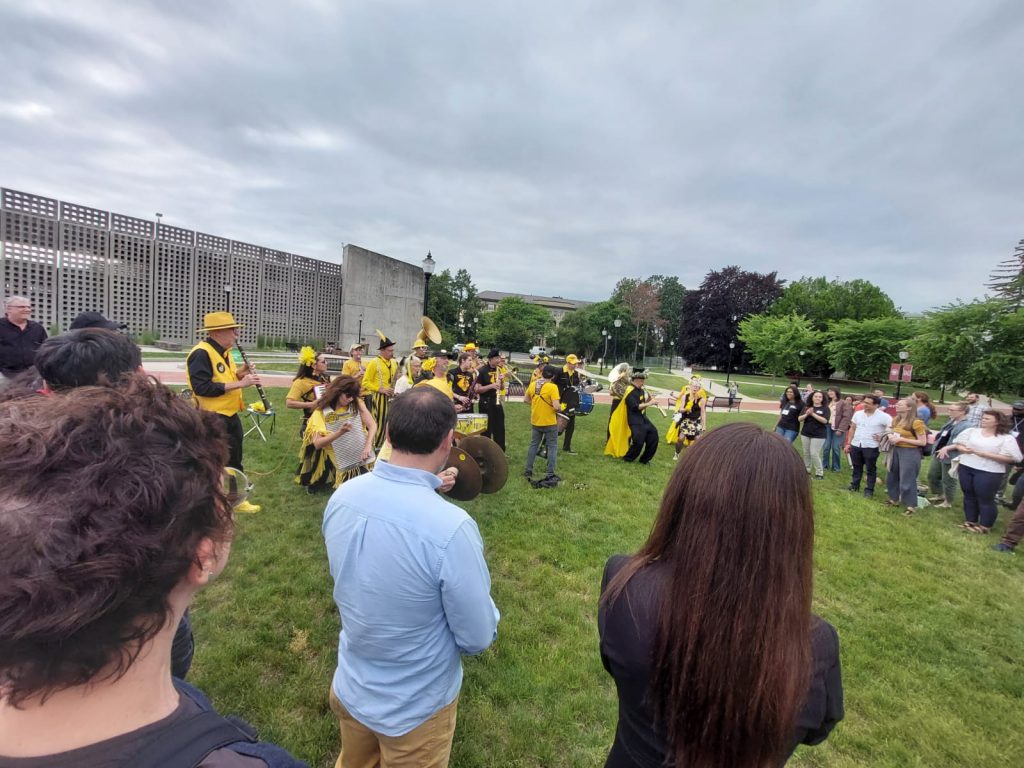
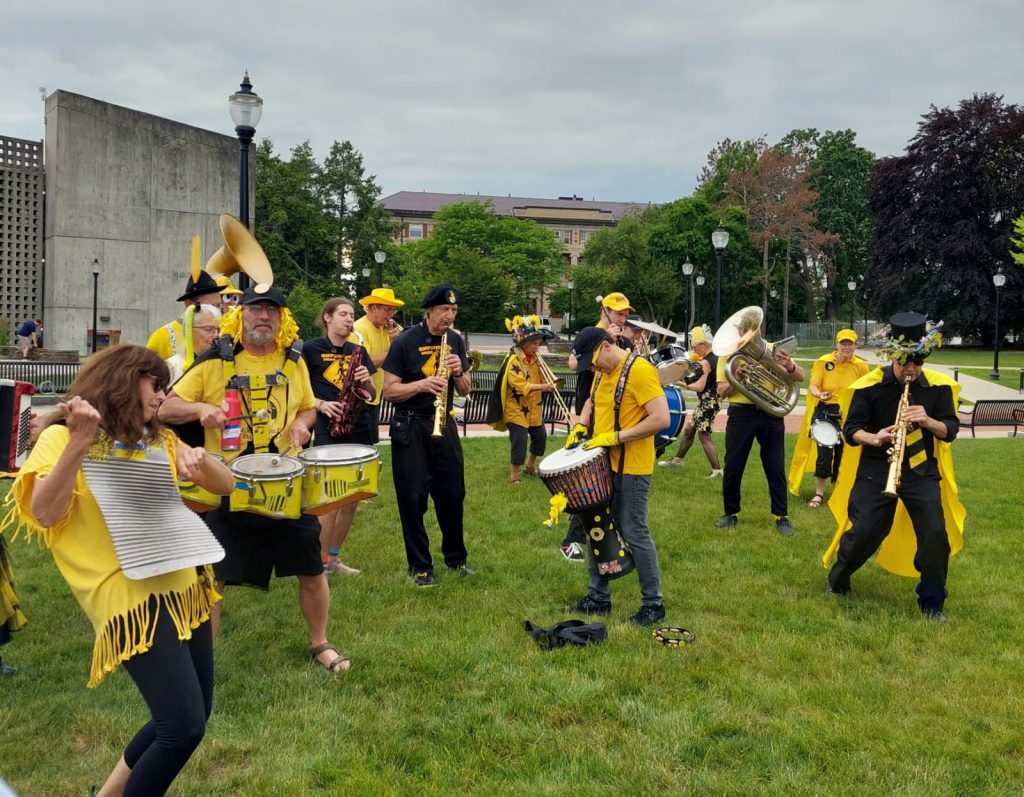
Many thanks to colleagues at the University of Massachusetts, the IASC 2025 organisers, for arranging the insightful excursions with Cherry Hill Cohousing and Sirius Ecovillage.
Cherry Hill Cohousing has 32 houses and a common house (community building), a wood workshop, an office building, and gardens that are shared and completely managed by community members. We had the opportunity to learn how a group of ~80 people self-organises their community life, how decisions are made and the ways in which management tasks are shared. Our host Jerry explained the difference between decisions made through consensus versus a consent-based system and the latter is the mode that they find works best for their decentralized governance system.
Sirius Ecovillage operates as both a non-profit educational center and spiritual community that embodies sustainable living. Members of the community share the responsibilities of managing the grounds which contain organic gardens, greenhouses, and other facilities. It was inspiring to find out how members of this intentional community support each other’s wellbeing and personal growth in pursuits of sustainability and mindfulness.
We are grateful to our knowledgeable hosts Jerry Koch-Gonzalez (Cherry Hill) and Marianne Connor, Education Program Manager (Sirius) from whom we have learnt a great deal.
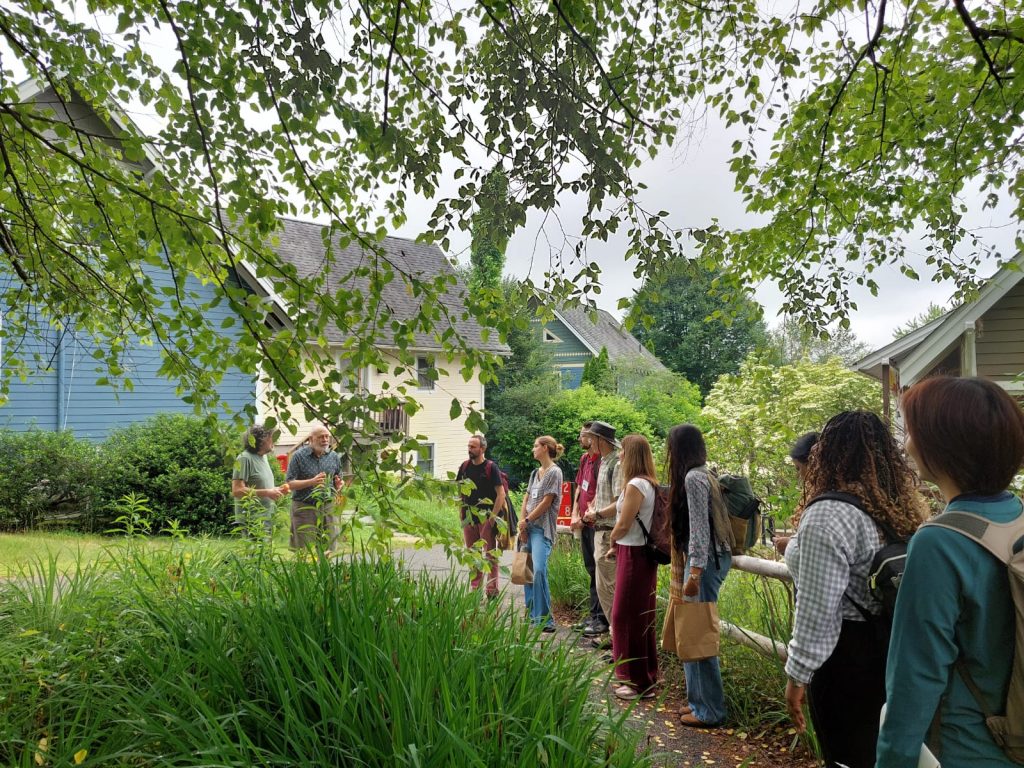
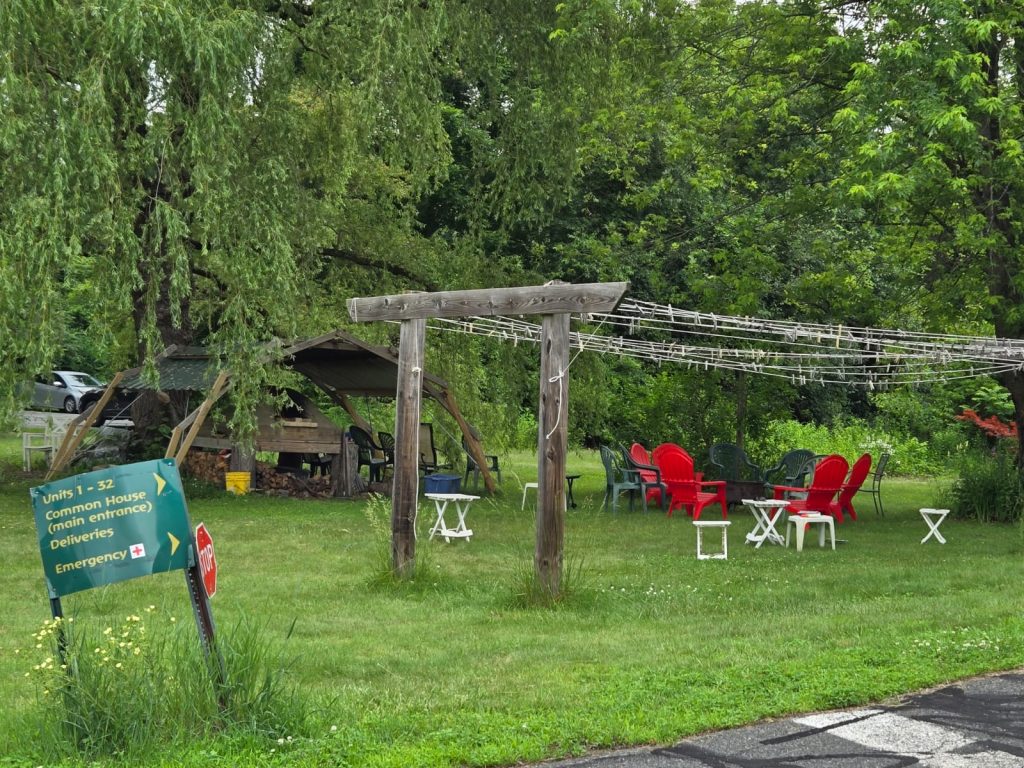
Category : Research

